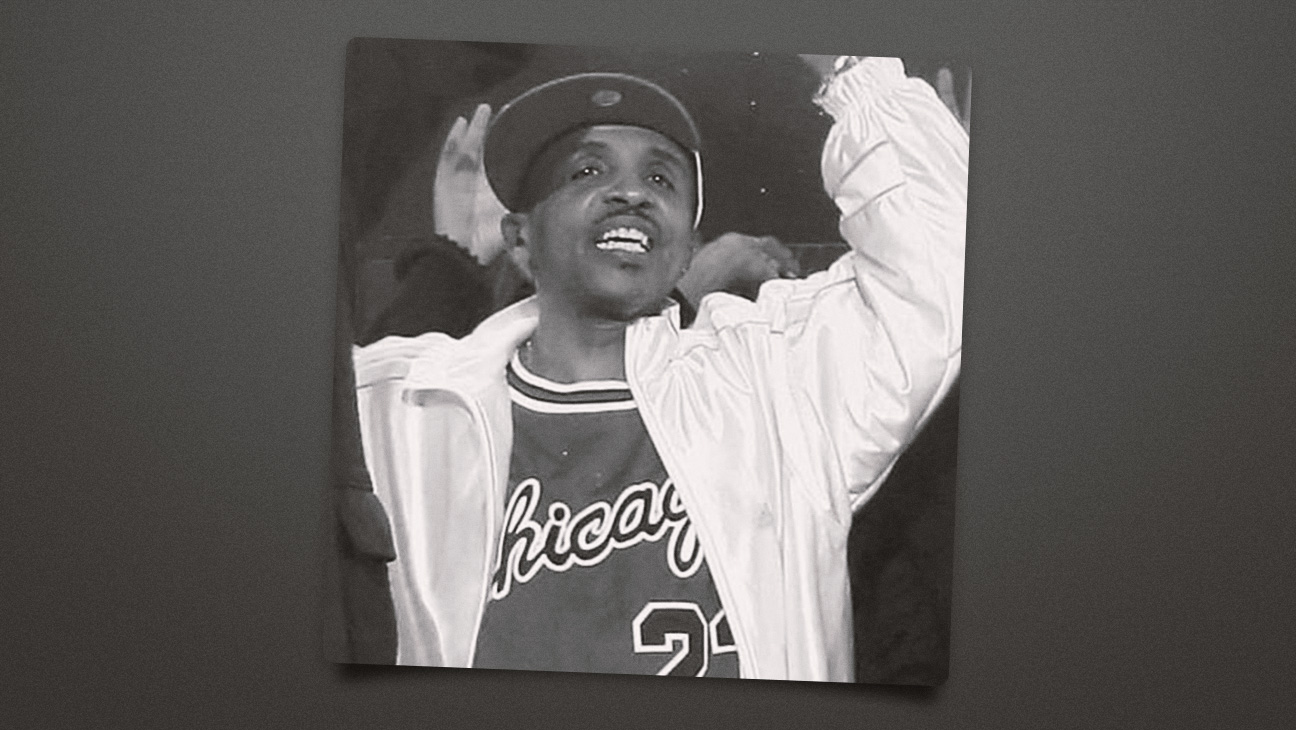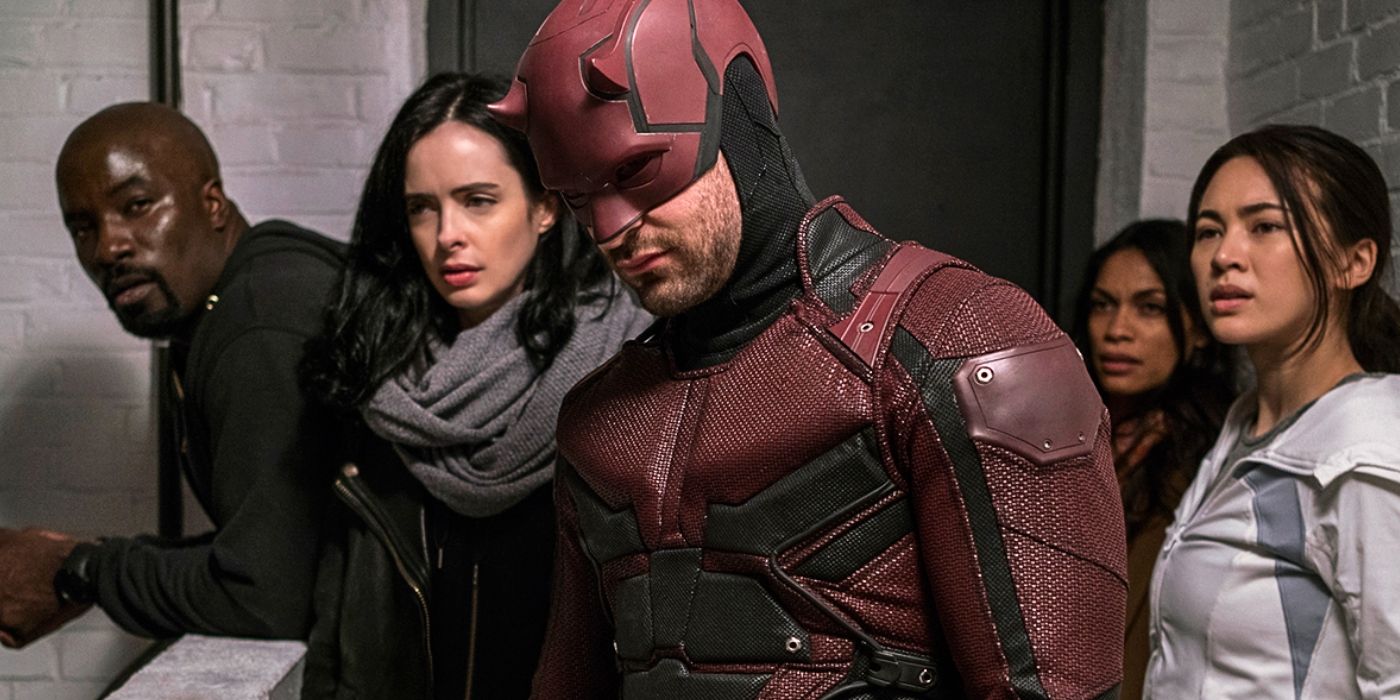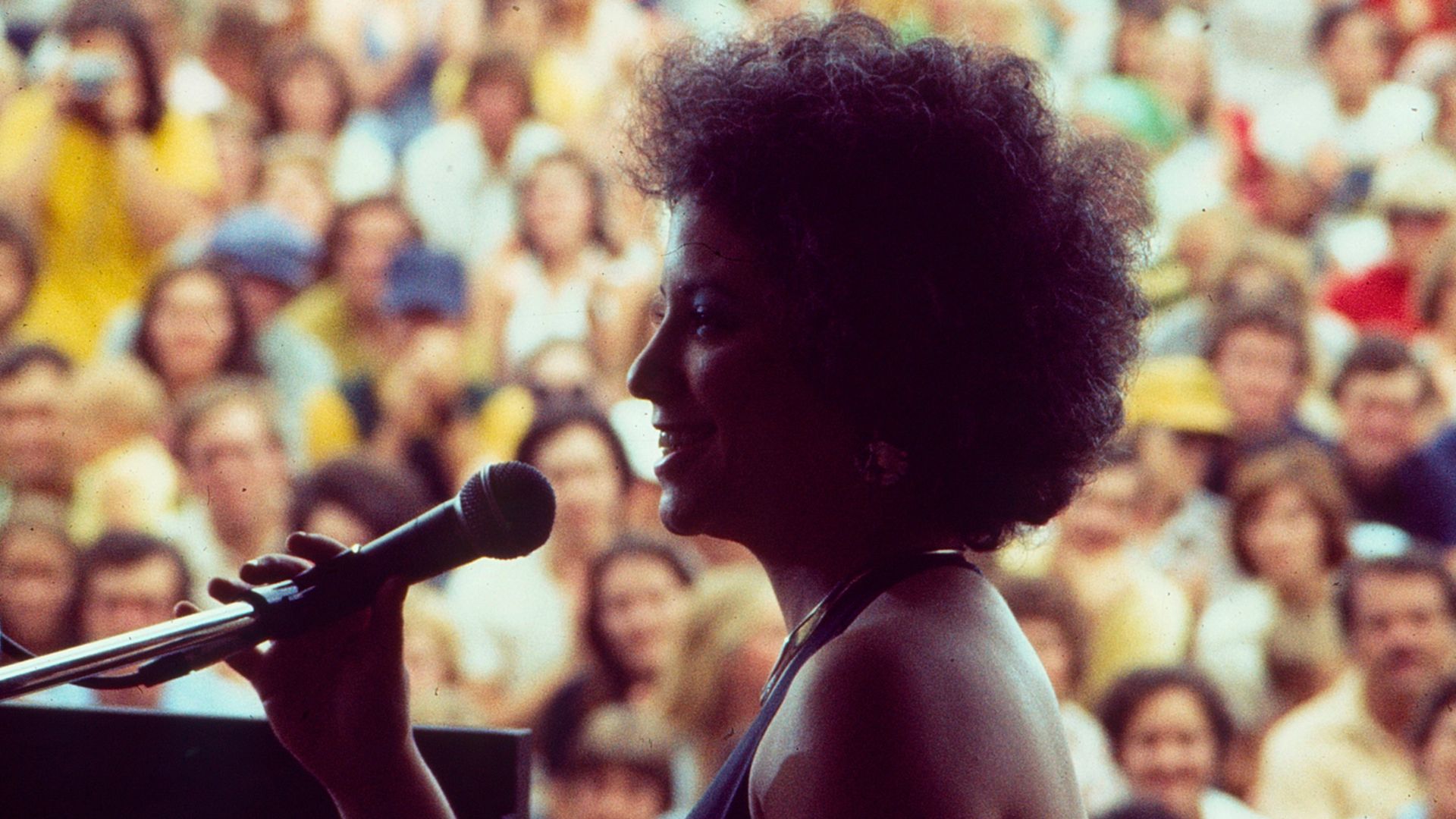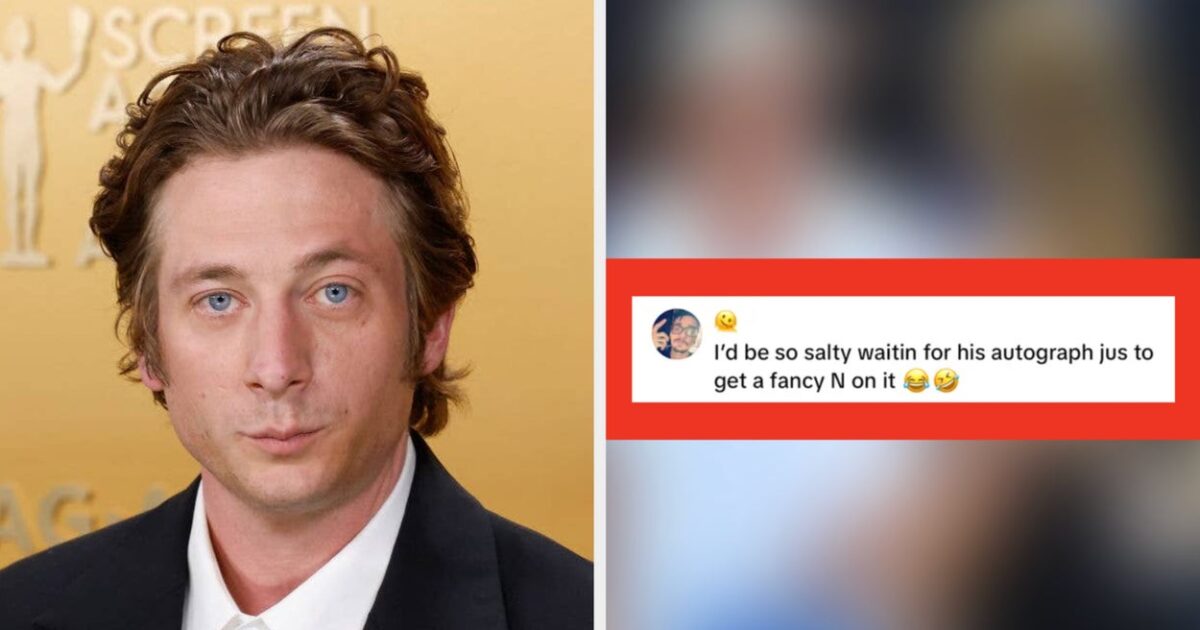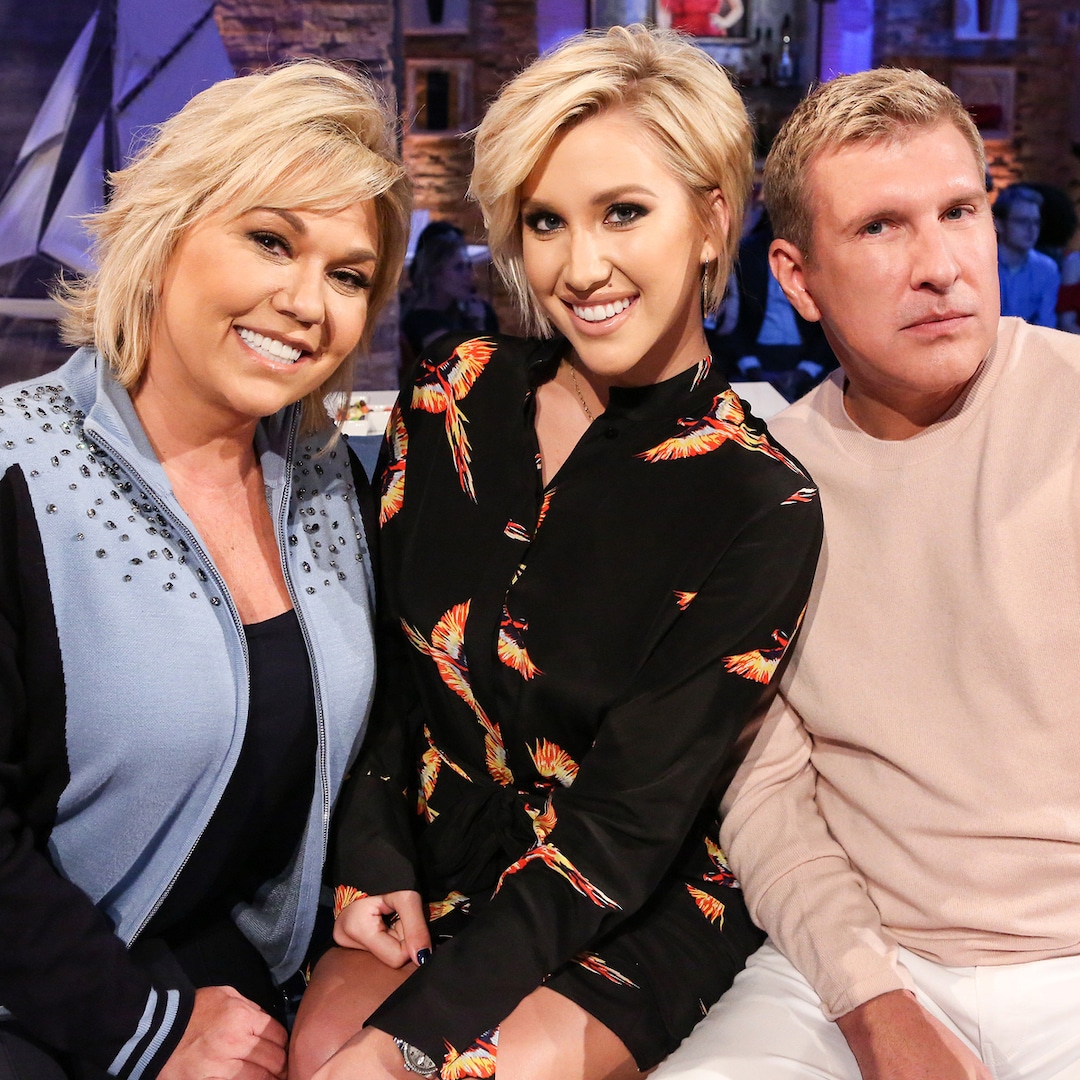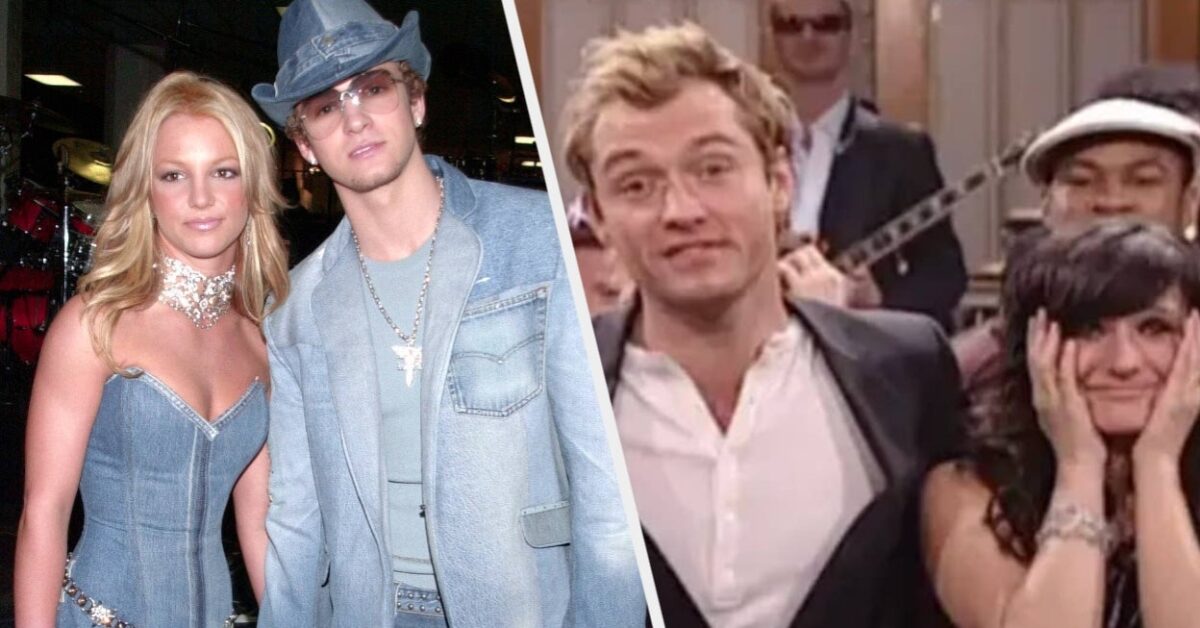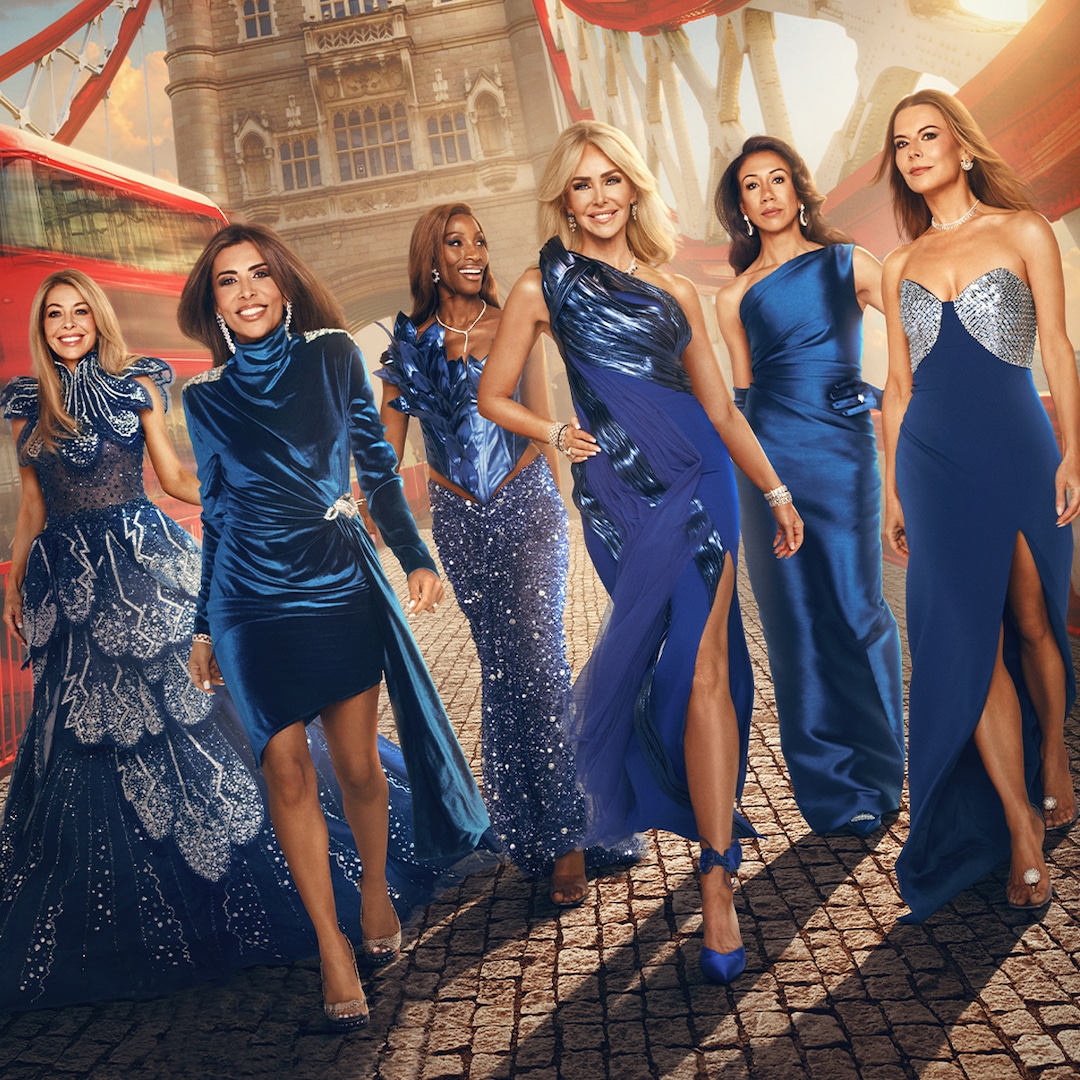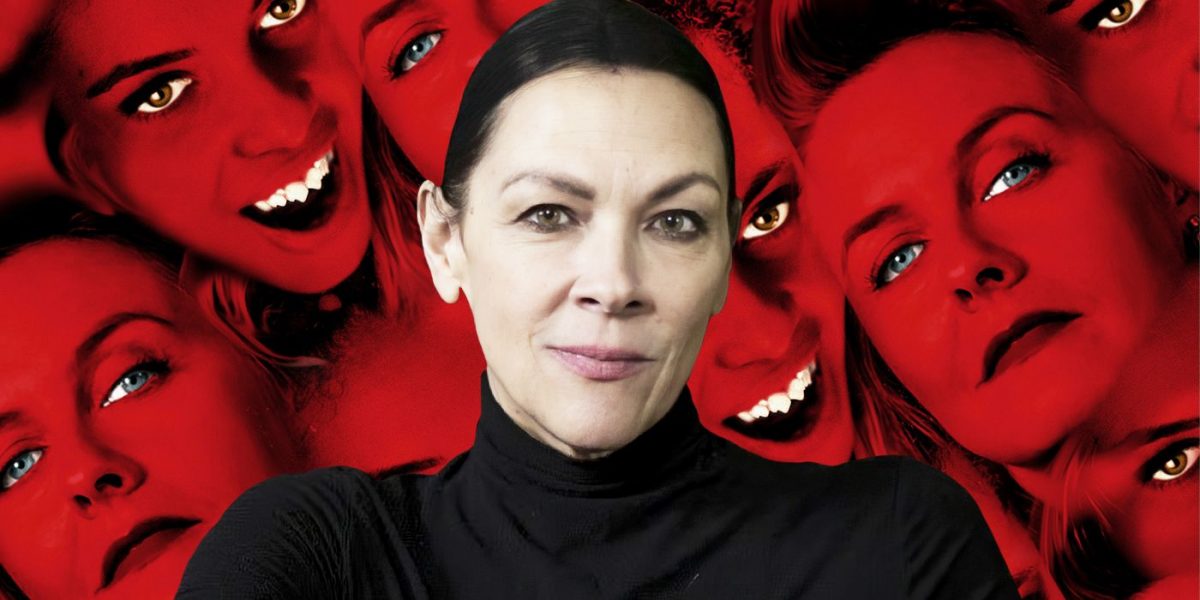
How Jennifer Reeder Gives Blood Agency in New Horror Movie ‘Perpetrator’
Sep 3, 2023
The Big Picture
Perpetrator follows Jonny, a teenager who discovers she’s gained super-empathy and shape-shifting abilities on her 18th birthday. Director Jennifer Reeder discusses how the success of Knives and Skin influenced the green-light process on Perpetrator. She also details her collaboration with the film’s stars, up-and-comer Kiah McKirnan and 90s icon Alicia Silverstone.
Looking for a uniquely strong voice in the genre space? Someone with a knack for crafting hypnotic visuals and narratives with thematic heft that are further amplified by horror elements? Look no further than Jennifer Reeder, and in particular, her latest feature film, Perpetrator.
The movie stars Kiah McKirnan as Jonny, a teenager who’s sent to live with her Aunt Hildie (Alicia Silverstone) just before her 18th birthday. When the big day arrives, Jonny gets an unusual and very unexpected gift. Via a family spell called Forevering, Jonny gains a sort of shape-shifting ability. Her empathy is now so strong, it’s a superpower, and it’s a superpower that could come in handy when several girls go missing at her new school.
Reeder’s been delivering standout work that feels uniquely her for quite some time now, but she made especially big waves with her 2019 release Knives and Skin, which premiered at the 2019 Berlin International Film Festival before hitting theaters via IFC Midnight. (It’s currently available to stream on Tubi.) Now she’s on a similar path with Perpetrator. The film debuted at Berlin, made the festival rounds, and is getting a theatrical and Shudder release on September 1st.
With the film now playing in select theaters and available to stream, Reeder took the time to chat with me about the development of the idea, the reality of getting another extremely bold project off the ground after the success of Knives and Skin, what it was like working with McKirnan and Silverstone, and so much more! You can hear it all straight from Reeder herself in the video at the top of this article or you can read the conversation in transcript form below.
Image via Shudder
PERRI NEMIROFF: Did you have a break story moment, a particular idea that you came up with that you felt pulled everything together and made you say, “The idea is rock solid now and we should go on it?”
JENNIFER REEDER: Yeah, the biggest question and hurdle was, what would her shape-shifting be? I was writing, writing, writing, and I still had this giant gap. I knew that I didn’t want her to be a werewolf or a vampire. I knew that I didn’t want her to turn into an animal. I mean, that is like the only question and yet the biggest question, which remained a question for a long time.
When I started thinking about, in a very unrelated way, the power of empathy and then extending that to the idea of a kind of magical empathy or empaths who really feel, whether it really works or not, that they can absorb someone else’s feelings and energy, and in a girl superhero way, I thought, “Well, that could be really productive for her if she gets to absorb it and then sort of give all of that back to somebody in that kind of playground way like, whatever you say bounces off me and sticks back onto you kind of a thing.” [Laughs] And then also, very coincidentally, there was this moment where I thought, “Okay, super empathy could really work, especially if I think of it as a way to kind of flip the script on the idea of the overly emotional woman and how that becomes her superpower.”
Very coincidentally, I was watching all of these back episodes of The Twilight Zone and there was one where this guy, depending on the way he angled his hat or what the light was, could be mistaken for someone totally different. In that moment I thought, “Oh god, wouldn’t I love to be able to do that?” I mean, invisibility is cool, but to be able to be one person right before you walk into the room and then be somebody completely different when you walked into the room? And so I thought, “Okay, well, that makes perfect sense.” That was that moment where I thought her empathy is so supercharged that she can really look like someone else. And especially when I thought about the reveal of when the mother appears and how much more complicated that could be; one particular kind of person living as another particular kind of person and how, even culturally and allegorically, that could feel relevant to conversations around race and gender. So it was the biggest question of the film and once I figured out that I could do it in a way that would work, at least for me, then that felt like, “Okay, we got it. Let’s go.”
It’s such a brilliant way to tackle that idea and those kinds of experiences. One of the main reasons why genre is my favorite form of storytelling is because I find it easier to process difficult human truths via out-of-this-world scenarios like that, and turning empathy into a superpower is something that deeply spoke to me.
REEDER: Oh, great! That’s what I would hope. Touring around with [the film] so far in the limited festival and other kinds of one-off screenings, having even a lot of teenagers in the audience, a lot of queer teenagers, trans teenagers who come up to me afterwards and are like, “I feel seen and validated.” Even ones who went into the experience not necessarily as genre super fans and were a little like, “I get scared in horror movies,” and I was like, “There’s a couple of little jump scares, but I think it’s gonna hit you in a deeper way.” And having that response from those actual folks, and others as well, has been really meaningful. I’m never quite sure if I can pull it off at the end of the day, but I am also not interested in doing anything less than taking some big risks and seeing if it works.
If you’re not taking big risks, what’s the point?
REEDER: Then what are you doing? What are you doing with your life?
Exactly!
Image via Shudder
I want to get into the green-light process a little. After the success of Knives and Skin, what would you say is the biggest misconception about what happens when you follow up a hit feature? But then I also want to know something about the reception to Knives and Skin that actually helped get this movie made, and made the way that you wanted.
REEDER: That’s a great question because I think from the outside, the idea that you’ve had a successful feature film that launched out of a great festival, that had a nice theatrical run, that got some great press, blah, blah, blah, that it would be a no-brainer. Every phone call, every knock at the door would be people just dying to help you make your next film. That’s not necessarily the case, or that has not been the case for me, and I think, sadly, it’s not always the case for a lot of women writers and directors, that some amazingly successful women writers and directors sort of start over with every new film. Especially in the sense that if you are taking some risks that you have to convince the potential green-lighters that you can and will do exactly what you say you can and will do with all of the money that they are prepared to give you.
Trust weird women. I say that especially on the heels of the success of Barbie. I loved your interview with Greta [Gerwig] and Margot [Robbie] about all of the issues that they were having. It was just endless issues. There wasn’t one. All of them were issues. Chipping away at all of that doubt and chipping away at all of those potential nos can be exhausting, but you either do it or you just quit and hope that Dunkin Donuts is hiring. I’m not a baker at all, so my only option is to stay in the room and keep the story going that says, “I know exactly how to do this, and I know exactly how to make the days and to stay on budget, and I know exactly how to get the cast that you think is gonna make this really special, and I know exactly how I’m going to choreograph a fight in a giant well of blood,” et cetera, et cetera, et cetera. That starting over, it can be exhausting, but I know other women do it, and you either do it or you don’t.
I was so happy to work with Shudder again. I talked to a lot of other companies who were interested in partnering for financing for this film, and some of them kind of couldn’t get around it. I mean, for some of them, they understood that genre is hot, women in genre is hot, and so they kind of wanted to get on that train, and yet at the end of the day couldn’t make that leap, and I hope that they’re regretting it so much right now. But, you know, Sam [Zimmerman] and Emily [Gotto] from Shudder who I had worked with previously who knew exactly who I am and my potential, and were just like, “Okay, we trust you. Let’s get ready to play and get weird,” which is exactly what my amazing cast did also. They really signed themselves up for as weird as you can get, and nobody looked back.
Your cast in this is something else. I want to focus, of course, on Kiah first. When you’re casting that kind of role, what do you look for in an actor that doesn’t just signal to you, “Yeah, she can nail the sides that I’m giving her,” but rather that she can go 110% in almost every single scene of this film?
REEDER: I had seen her in a very small but memorable role in Mare of Easttown and knew that she was really compelling in front of the camera. I don’t know who saw that series and wasn’t just like, “Oh, who’s that DJ?” So I knew that she had to be someone who was really captivating in front of the camera. Not to sound like a gross director, but I really knew that she physically would be really captivating in front of the camera. And then when I spoke to her, the thing that she said to me that none of the other young actresses that I spoke to said to me – she said that as a young woman of color, multiracial, queer, that she really understood Jonny’s transformation as being much more metaphorical for a multifaceted identity and that in Jonny’s transformation that there is a kind of nuanced code-switching, and that she really understood who she has to be with her family, with her friends, maybe in an audition, that she really understood in her own skin who Jonny was in terms of her ability to, even before and after her transition, to sort of try on her own new skins. No one else had said it like that. And I didn’t set out to necessarily make that a huge draw for the actor, but I knew absolutely that then Kiah would be able to show up every day, because she was on set every day, she’s in every scene, and that she would own that role. Not simply be able to do it because, yeah, she’s a good actor and she was interested in being the lead, [but] that it was important to her at her core.
It’s not easy to hit every single one of those layers you just mentioned and still make a character feel like the same person, make them feel cohesive, but that is something she does in this exceptionally well.
Image via Shudder
When I walk away from a movie like this, I look at her and I’m like, “That right there is someone that more filmmakers should cast as their lead.” So what is something about working with her as a collaborator and the lead of your film that you’re excited for more directors to get to experience when they work with her in the future?
REEDER: She is absolutely a trooper. She comes from a theater background. I love working with theater people because they have endurance. Kiah is a beautiful young woman, but she puts the grind in and she puts the sweat in, and she is absolutely delightful and friendly and open and trusting. Whether it’s a film like this or it’s something that is more grounded in reality, an actor has to trust their director and she trusted me. That back and forth, if you don’t have that, then you have nothing. And I felt that from Alicia [Silverstone], I felt that from Christopher Lowell, I felt that from all of the amazing supporting actors. And that’s a huge responsibility. Walking on set is a huge responsibility over and over again because if something goes wrong, everyone looks at you. If things go right, that’s the assumption. No one gives you a pat on the back for doing what you said you were gonna do. But with the actors, especially if you’re asking them to be vulnerable, to be weird, to be gross, then there has to be that level of trust and Kiah let me let her be beautiful and funny and weird and gross.
I have the lipstick scene stuck in my mind. You would think with all the genre movies I watched that something like that wouldn’t bother me, but the idea of actually eating lipstick, it literally turns my stomach thinking about it.
REEDER: Oh, absolutely. And thankfully we had an amazing props wrangler who made some delicious kind of gluten-free, vegan, edible lipstick that I was not willing to try myself, I have to say.
I made one movie back in the day about eating eyeballs and I did indeed try the fake eyeball at a point. I cherish that experience.
Because you just mentioned Alicia I’ll go to her next. Did you two ever discuss what’s drawing her to genre storytelling right now? Obviously I grew up totally obsessed with Clueless, but now I’m obsessed with movies she’s in like this, of course, The Killing of a Sacred Deer, and The Lodge, which I’ve watched more times than I can count. Did the two of you ever talk about what’s drawing her to genre storytelling now more than ever?
REEDER: Yes, and I kind of suspected what the answer would be, and she confirmed it. Stories like Perpetrator, and certainly like The Killing of a Sacred Deer, and even The Lodge, and especially her part in The Lodge, which is gnarly – it’s a small role, but I was like, “Whoa! Oh god, what just happened? I have to watch that again,” They are authentic but very complex, real representations of an experience of a woman that is sadly kind of rare in so many films, it seems to me. And she still is, in her real life, this up-talky, Southern California blonde, gorgeous surf hair, and yet she’s so smart and she has such an interesting perspective on the world. She’s a mother, she’s an activist, and she knows in her own skin that she deserves to play roles that are complex, even if they are a little gnarly and bloody, even if the character isn’t traditionally beautiful. I mean, she is an attractive woman still, super attractive, and yet she also understands the value of playing somebody for whom youth and beauty is not their accomplishment. There’s something a lot more rich and complicated.
I had to write her this long letter in anticipation of sending the script to her. In the letter, I talked about how meaningful it would be to cast her as this really powerful, complicated matriarch of a shape-shifting family who’s a mentor to an iconic teen knowing that in her own provenance, she was introduced to us as an iconic teen in a role that she totally still embraces. I mean, we had the amazing coincidental fortune of screening Perpetrator in Berlin the Friday after her Super Bowl ad appeared where she kind of reprises the Cher Horowitz role for an ad for, I think it’s Rakuten. It was great to be reminded of who she was, that we all remembered how we met her. And then to sort of pattern her in Perpetrator very specifically after the Catherine Deneuve character in The Hunger. There’s a lot of Miriam Blaylock in my Hildie, or a lot of that Tippi Hedren, Kim Novak, cool Hitchcockian blonde, the structured hair or the buttoned-up outfits. Hildie had to be restrained. And Alicia landed and came to set and really wanted to stylize Hildie, even in her own acting. She lowered the register of her voice, she spoke more slowly, she has these twinkling eyes, but she was able to kind of deaden them a little in this way that also had an eeriness about who she was and what exactly Hildie has experienced over her lifetime. And that can only happen if you’ve got a really smart actor who’s looking for roles that are complicated and challenging.
Image via Shudder
One of the scenes that impressed me the most from an acting standpoint, and also writing, is that exposition-heavy scene right smack in the middle of the movie where Hildie answers all of Jonny’s questions, or tries to the best of her ability. It feels like those big explainer scenes could run the risk of killing the illusion or even the momentum of a movie, but that scene felt like it was powered with so much natural curiosity and warmth, and I do think that comes from the script, but it’s also in the way she delivers those lines and it’s a make-or-break type of delivery right there.
REEDER: Oh, 100%, and it was even longer. We took some parts out. Because her shape-shifting, the Forevering aspect, it’s a little more nuanced than just her turning into a werewolf, for instance – nothing against werewolves. Love werewolves! But right, getting a kind of monologue like that where you have to deliver some expository information, and yet I still wanted to keep it a little mysterious and poetic because I just feel like it would be antithetical for Hildie to explain it in a very pedestrian kind of clunky way. She has to have a possession in reverse, where a woman is feeling all the feelings, period, and to have these moments of where an audience has to sit and think about what that means exactly.
Working with Alicia herself, I mean, she did so much prep leading up to it. She would call me or text me with questions about a line. For instance like, “Possession in reverse,” she thought about it a lot. And sometimes she would ask me a question and just as I was getting ready to answer it she would say, “Oh, never mind, we’re making art.” I was like, “Okay, I have an answer. I can answer that question,” but she was like, “I’m gonna go back and figure this out for myself,” or understand and trust you in that art is important for that sake, and that we don’t have to make something that feels so basic. We can make these weird moves, which is why I find working in the genre realm so productive because I can lean into what I do best, what I think I do best, which is a kind of visual storytelling, and I can lean into the unexpected or the allegorical, and I know that genre fans are down to go there and to kind of fill in some of the gaps.
Having said that, I don’t set out to make gaps. I want the story to make sense and I want an audience to feel satisfied. I know there’s lots of people who are not at all satisfied with the moves I make, which is totally fine. But I think the cast of this film, at some level, also are all kind of artists at heart. Certainly, Alicia, having been an actor for as long as she is, it’s in her, and Christopher Lowell who is also kind of a number one weirdo. I mean, his Instagram is full of his own photographs, which are incredible. He’s a great actor, but he really is someone who, in his real life, is someone who just appreciates art for art’s sake.
I love that you preserve the mystery and don’t spell everything out. It invites a viewer to apply their own experience and thinking to this scenario. Given the fact that this film has been on the festival circuit for quite a while, is there any particular reaction that someone had to the movie that pleasantly surprised you or maybe even inspired you to rethink something in your own movie, or perhaps appreciate it more?
REEDER: Well, the biggest surprise in both audience Q&As and a lot of the press is the reaction to the blood. I really didn’t set out to make this blood-soaked film. Look, I would walk on to set and there would be five five-gallon buckets of blood, and I was like, “Yeah, of course. I don’t know that we’ll use all of that today, but in the next couple of days, for sure.” I just wanted to make a film that authentically felt like what, oftentimes, my own experience as a person with a uterus has felt with blood in that I wanted to kind of make blood its own character and give blood its own kind of agency and aura because I think that we still also live in a culture where women bleeding is, at best, a secret, at worst, a shame. And so I set out to make a film that felt like it was giving blood its comeuppance.
And what’s been surprising is the response, it’s like, “Wow, that’s the bloodiest film I’ve ever seen!” I’m like, “That’s the bloodiest film you’ve ever seen?” Ok, I mean, it is bloody – so, that was a surprise, but at the same time, I’m like, “Okay, I’ve made the bloodiest film that at least that person has ever seen!”
It might not be the bloodiest film I’ve ever seen, but it’s maybe one of the movies where blood made a unique impression more so than ever, where you actually capture a multitude of layers of blood in addition to your human characters.
REEDER: Yeah, and we definitely had different kinds of blood on set depending on, in my mind, what the origin of that blood was. And certainly, our blood-makers in the art department had to keep their gag reflex under control. I didn’t realize how much a vat of very fake theatrical blood could really kick in some kind of visceral reaction. [Laughs]
Perpetrator is now playing in select theaters and available to stream on Shudder.
Publisher: Source link
Jeremy Allen White’s Bizarre Autograph Goes Viral
Jeremy Allen White's Bizarre Autograph Goes Viral The Bear star is currently going viral for his autograph. Here is a near-exact replica I did on a sticky pad, but you can see his signing in action here. People headed straight…
May 31, 2025
Why Julie Chrisley Was Absent From Press Conference
"As Savannah said," Todd continued, "she has fought a long fight, and for any parent to see their child fight this hard, it's a double edged sword. It's a blessing, and then your heart breaks because your child has been placed…
May 31, 2025
Cringe ’00s Pop Culture Moments We Can’t Forget
Cringe '00s Pop Culture Moments We Can't Forget No matter how nostalgic you feel, it's hard not to admit that the 2000s were a decade of cringe. Recently, the BuzzFeed Community shared the pop culture moments from the '00s that…
May 30, 2025
The Real Housewives of London Cast Revealed
The Housewives are hopping the pond. Hayu has revealed the first look at the cast of the upcoming reality series The Real Housewives of London—and one costar might look very familiar to Bravo fans. The six England-based stars include Ladies…
May 30, 2025
